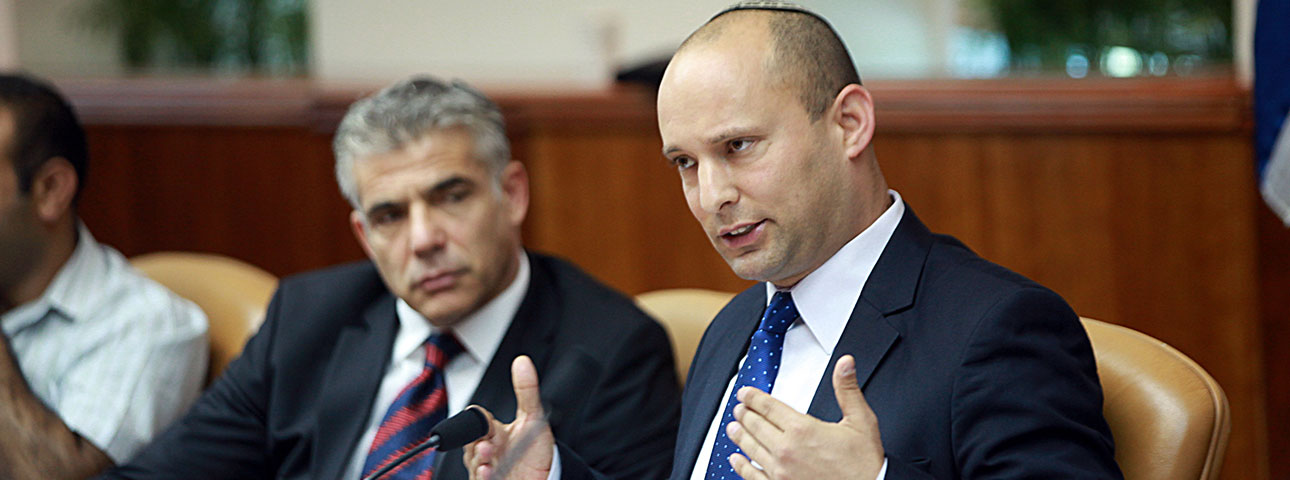Can Israel’s New Center Hold?
Writing in Foreign Affairs, IDI President Yohanan Plesner notes that Netanyahu is out, but the crisis he thrived on remains

Flash 90
Until the recent formation of a new coalition government, Israel’s political system—and with it the entire country—had spent the past two years in a state of paralysis. Four inconclusive elections and repeated failures to form stable governments had left senior cabinet posts and civil service positions unfilled, put long-term policy planning on hold, and left Israel without an approved budget in the midst of one of the worst health and economic crises in its 73-year history. Most alarming, May’s explosive escalation in Israel’s long-simmering conflict with Hamas was managed by an interim government headed by a caretaker prime minister.
While the unprecedented spectacle of Israel’s powerful, long-serving prime minister, Benjamin Netanyahu, on trial for corruption undoubtedly exacerbated the turmoil, the root causes of the crisis include deepening social divisions that have helped to expose the inadequacies of Israel’s constitutional structure. Despite Netanyahu’s ouster (he and his family finally vacated the Israeli prime minister's official residence on July 11, nearly a month after the new government was formed), most of these issues remain unresolved, and all will require difficult but necessary structural reforms. Making these reforms must be the top priority for Israel’s new leaders.
Read the full column in Foreign Affairs.
